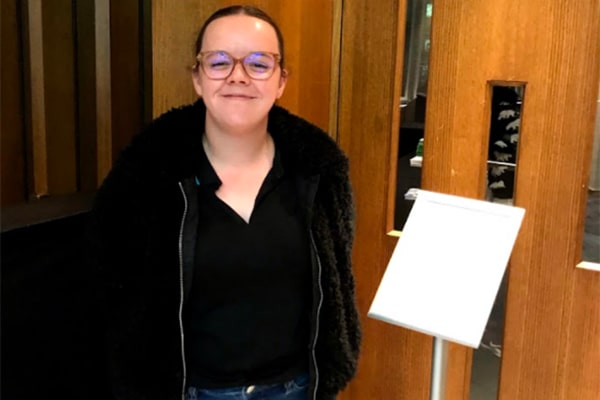On the 18th and 19th of February I attended the Acceptance and Commitment Therapy for Beginner’s Two-Day Course in Melbourne facilitated by Russ Harris; a world-renowned trainer of Acceptance and Commitment Therapy. It was a cold two days for this Townsville girl who wears a jumper most of the year.
Acceptance and Commitment Therapy (ACT) (pronounced as the verb ACT) at its core is accepting what is out of your personal control and committing to action that improves and enriches your life. I like that ACT aligns with occupational therapy’s goal of living a meaningful and rich life.
Over the two days I learnt a lot about myself and continue to use ACT on myself daily and with clients and family/friends. ACT partly focuses on being “hooked” by your thoughts and attempting to “unhook” using different tools. Some tools for this include saying “that’s an interesting thought” or “thanks brain” when coming thoughts that might “hook” you arise. Another useful one I find is Naming The Story- if you were to put all these thoughts and feelings into a book or movie and titled it the something story- what would you call it? E.g. the Not Good Enough Story so each time it shows up, you can say “ah, there’s the Story again”. Another one is Leaves on The Stream- imagine you are in front of a stream and all your thoughts and feelings go onto a leaf as they come and let them float away.
Another large part of ACT is Values, some tools to explore this further include The Magic Wand- You wave this magic wand, and all these painful thoughts, feelings, and memories no longer have any impact on you. What would you do with your life? What would you start, stop, do more of, or less of? How would you behave differently? If we watched you on a video, what would we see and hear that would show us magic had happened? I love discussing values because everyone is unique but living to your values makes for a meaningful and fulfilling life- no matter what is happening, whether you are rich or poor, young or old, with or without disability or health concerns.
Throughout everyone’s life, events will occur that cause distress, hurt, maybe anger, frustration such as a divorce, a parent passing, a difficult diagnosis however through acceptance of what is out of your control, and acting on what is in your control and living by your values, ACT says you can make it through using the tools. Pain is something that everyone has in common and it’s normal and part of being human. One exercise is The Choice To Feel: Suppose I could give you a choice: A. you never have to have difficult/painful feelings ever again, but it means you lose all capacity to love and care, orB. you get to love and care, but when there’s a gap between what you want and what you’ve got, painful/difficult feelings like this one show up. Which do you choose?
One technique I love for dealing with difficulty thoughts and feelings is to use The Healing Hand for difficult thoughts/feelings: Lay a hand on the part of your body where you feel this most intensely. Imagine this is a healing hand—the hand of a loving nurse or parent or partner. Send some warmth into this area—not to get rid of the feeling, but to open up around it, make room for it, hold it gently. Or try holding the feeling gently and softly as if it’s a crying baby or a scared puppy.
Russ Harris has written a number of books including the most popular The Happiness Trap. I have found the Reality Slap (an ACT based self-help book for grief, loss, crisis and trauma) which has a big emphasis on self-compassion to be immensely helpful professionally and personally- particularly when assisting people who have a disability or have been diagnosed with a terminal illness.
Acceptance and Commitment Therapy is a useful tool to deal with difficult thoughts, feelings and emotions and is gaining recognition as a highly effective tool. If you think this might assist you, contact us and discuss further.

